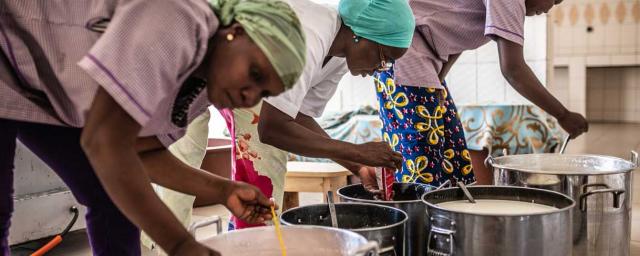
Burkina Faso has a population reaching almost 20 million people and is grappling with a progressive deterioration of its security and humanitarian situation due to terrorist attacks that have caused the displacement of almost half a million people within the country. Added to that are major challenges in the fight against poverty and injustice, as reflected by the 2018 Human Development Index (HDI) of the United Nations Development Programme (UNDP), which ranked the country 183 out of 189.
Oxfam in Burkina Faso
Oxfam has been working in Burkina Faso since the 1970s, collaborating with local civil society and farmers’ organizations to promote a life of dignity for the people living with poverty, particularly women and young peopl. With our partners, we provide assistance and protection in a context marked by a serious security crisis and mass displacements, improving the food security of vulnerable people as well as their access to basic social services and sustainable livelihoods. We help them overcome and cope with various external crises in a spirit of gender equality. Finally, we are helping create the necessary conditions to enable women and youth to take their place as active citizens in society.
Providing humanitarian aid in periods of crisis and climate emergency
We provide food, safe drinking water and hygiene facilities to people displaced by problems of insecurity and the families who host them. We also help households cope with climate change and external crises by providing them with the necessary means to set up a sustainable agricultural activity (livestock, seeds, tools, rehabilitation of degraded farms).
Promoting the development of family farming to improve food security
We are supporting and strengthening consultations between farmers’ organizations, the private sector, the State and civil society to improve the living and working conditions of the farming population, especially women and youth. This is being done, in particular, through the promotion of land ownership rights and bank credit. We are also contributing to the development of family farming, particularly rice, corn and milk (construction of buildings, provision of equipment, technical training and advisory support). We are also mobilizing civil society in favor of family farming (promoting local products).
Supporting citizens’ participation in good governance
Through our local partners, we work to promote the participation of citizens in decisions that affect their communities. For example, we are helping strengthen citizen control of the budget and transparency in the management of natural and financial resources. In terms of basic education, we train teachers and education supervisors in key issues (gender-responsive pedagogy, child-centered teaching) and contribute to improving transparency in the management of the education system at the local level.
